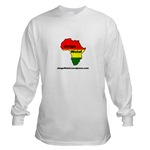See Travel Vocabulary I
-------------------------------------------------------
Here are a few things that you may come across if traveling to Senegal or the Gambia.
alham - white Mercedes bus, also called N'Diaga N'Diaye in Dakar
beignet - simple deep-fried donut (Senegal)
calesh - horse-drawn taxi usually seating about three people behind the driver
demi-pension - half board (dinner, bed and breakfast) (Senegal)
essence - petrol (gas) for car (Senegal)
fanals - large lanterns; also the processions during which the lanterns are carried through the streets
gare routière - bus and bush-taxi station, (also called autogare and gare voiture) (Senegal)
hôtel de ville - town hall (Senegal)
in sha' Allah - God willing, ie, hopefully (Arabic, but used by Muslims in Africa)
lumo - weekly market, usually in border areas
mairie - town hall; mayor's office (Senegal)
paletuviers - mangroves (Senegal)
quatre-quatre - four-wheel-drive car (4WD or 4x4)
riz yollof - vegetables and/or meat cooked in a sauce of oil and tomatoes
Senegambia - the region of Senegal and Gambia
tampon hygiénique - tampon (also tampon periodique and serviette hygiénique) (Senegal)
yassa poulet - grilled chicken marinated in an onion-and-lemon sauce (Senegal)
Thanks to Lonely Planet's The Gambia & Senegal; 2nd Edition.

